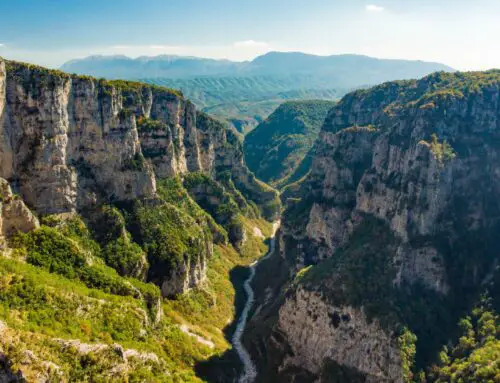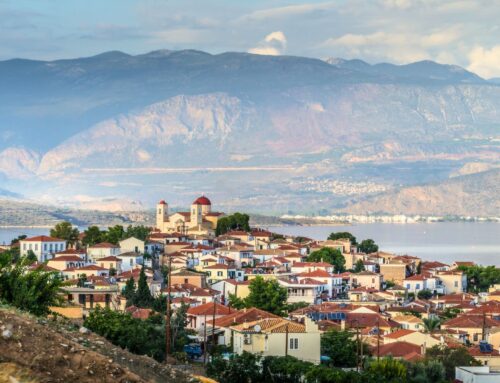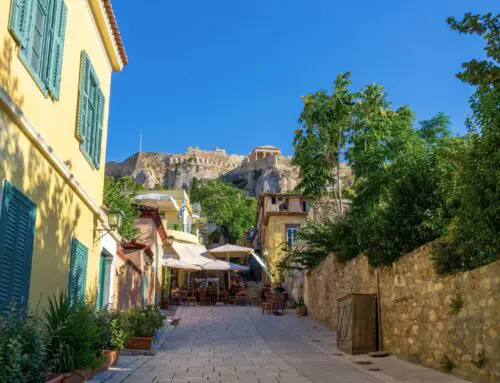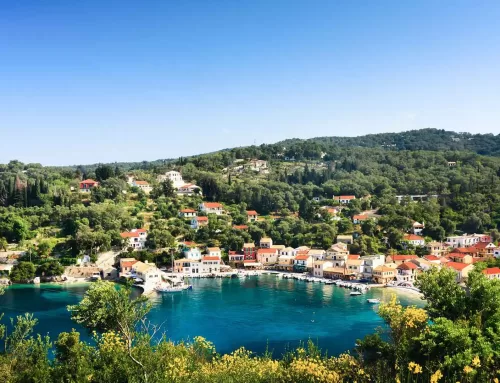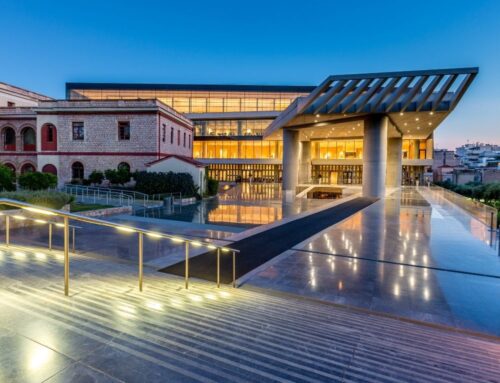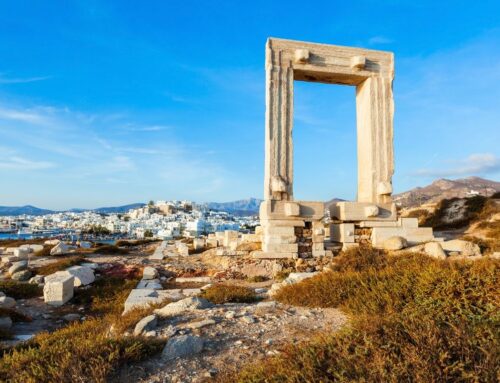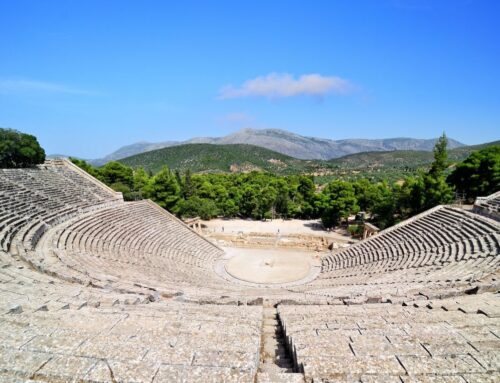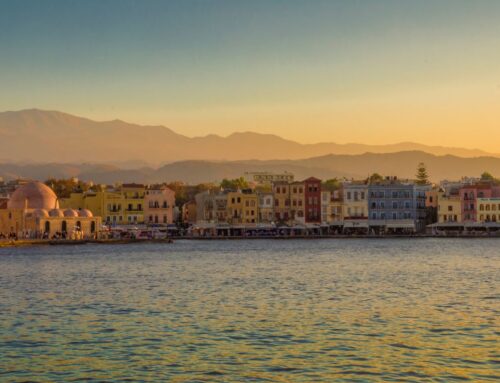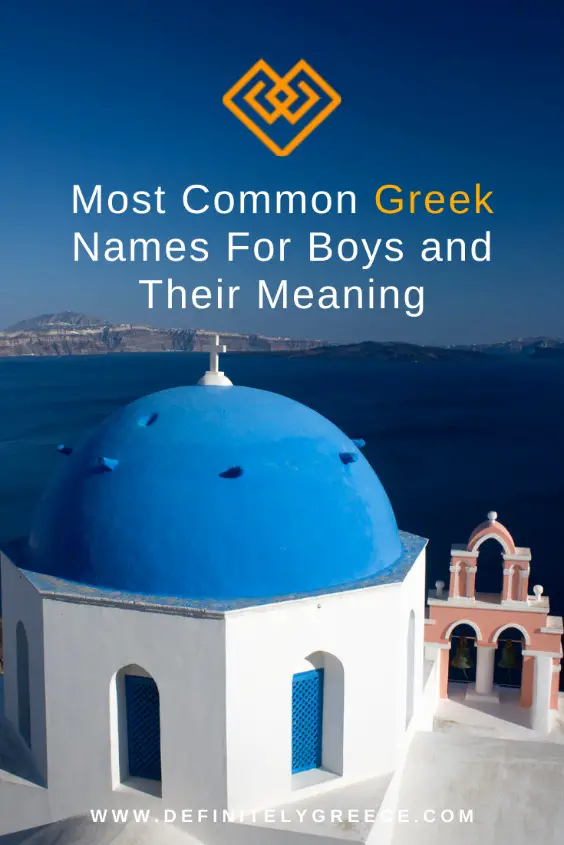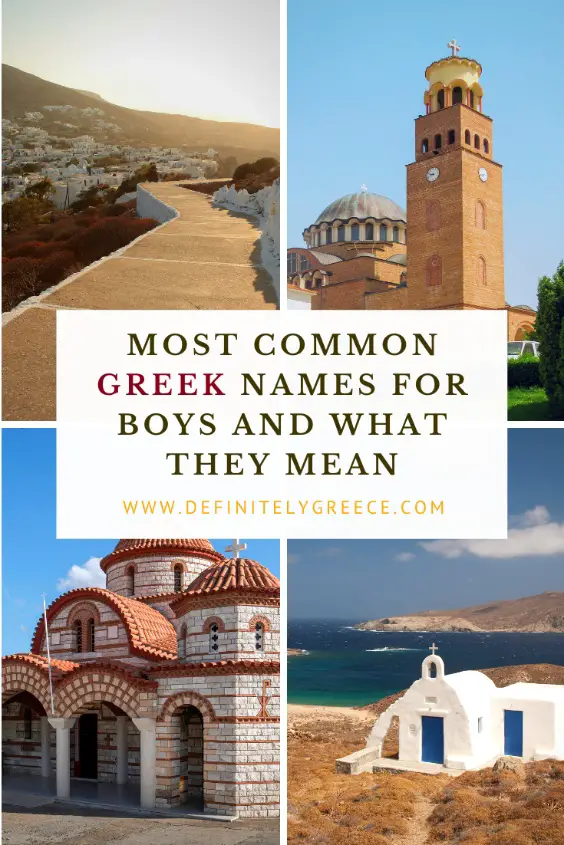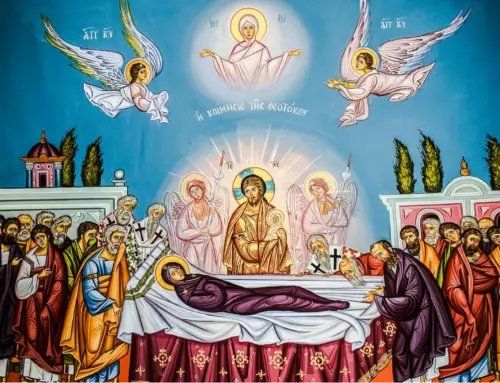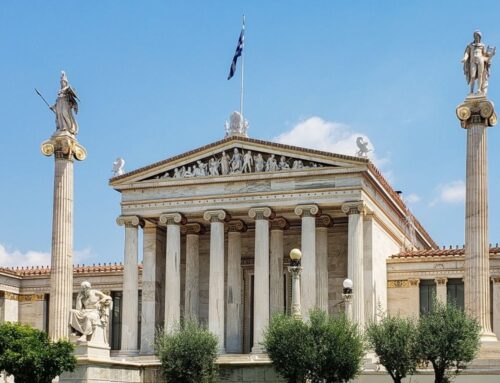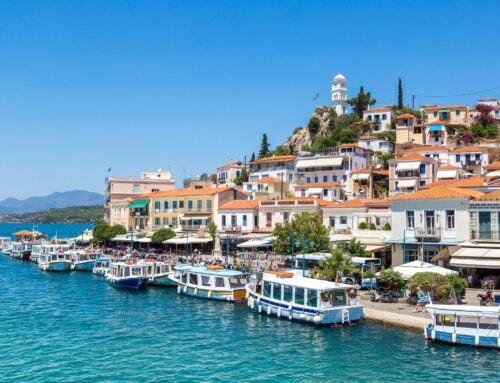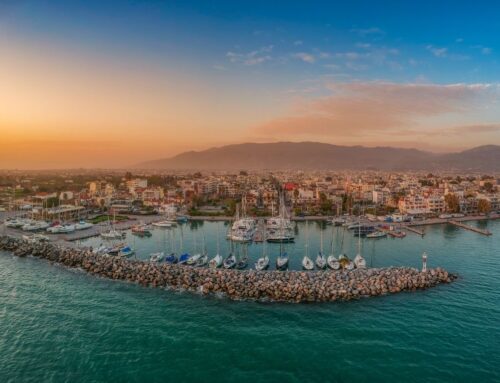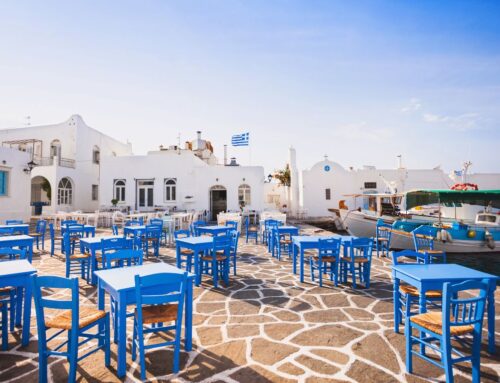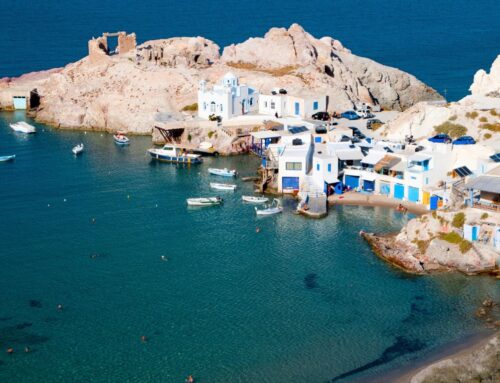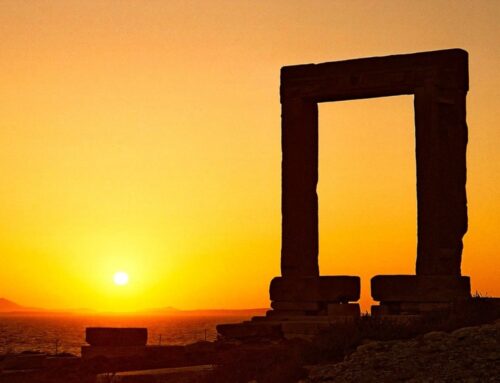Most Common Greek Names For Boys and Their Meaning
Most Common Greek Names For Boys and Their Meaning

☞ Table of Contents:
Do you want to know what the most common Greek names for boys are? Whether you are after a popular name for your baby boy or just curious as to why some names seem to dominate Greece, read on.
Common Greek Names For Boys
Yiorgos (George)
Yiannis (John)
Konstantinos (Kostas)
Dimitris
Nikolaos (Nikos, Nick)
Panagiotis
Vasilis
Christos
Athanasios (Thanasis)
Michalis (Michael or Mike)
Why are there so many Christian names?
With 90% of Greeks identifying as Orthodox Christian, it is not a surprise that all of the names in the list are Christian saint names.
That is important in order for a child to be baptized and be able to celebrate their “name day”. Name day celebrations are even more important than birthdays in Greece.
Some names do not have an official “name day” according to the saint’s book or “eortologio”. The names that don’t have a specific date dedicated to a saint are celebrated all together on “All Saint’s Day” (Ton Agion Panton). This is different from the Catholic or western Christian churches, that is set for November 1st. The Orthodox church commemorates all known and unknown saints 56 days after Easter Sunday.
All the Sundays between Easter Sunday and the end of the Paschal (Easter) season with the holy day of Pentecost have additional specific hymns from the Pentecostarion (Fifty Days Book) and even the services can be completely different that those of the rest of the year.
Easter is the most important religious celebrations for Orthodox Christians and that can be evident by anyone that has spend time in Greece during the Easter period, or has explored the wealth of Greek traditions.
The meaning of the most common Greek names for boys
- George/Yiorgos – from the Greek word “γεωργός” which means “farmer or earthworker”
- Yiannis (John) – god is Gracious – Hebrew origin
- Konstantinos (Constantine) – constant and steadfast – Greek origin
- Dimitris – meaning “earth mother” and “earth lover” – from Ancient Greece and then adopted in mythology – greek goddess Demetra
- Christos – meaning “virtuous” “righeous” but became the word for the Messiah, Jesus Christ
- Athanasios – meaning “immortal” or “eternal” – more common in its short form Thanasis
- Michalis – connected to the archangel Michael meaning connected to God – Hebrew origin
- Nikolaos– compound of “nike” and “laos” or “victory of the people” – Ancient Greek and Latin origin
- Vasilis– translates to “king” or “royal”
Names day celebrations of most common Greek names for boys
Yiorgos – Saint George – Floating Name Day
One of the most important and venerated saints in the Christian church, Saint George was a Cappadocian Greek soldier who lived and died sometime in the 4th century. He was subjected to heinous torture and suffered greatly until he was finally executed by beheading for refusing to renounce his faith.
Saint George is recognized as a great martyr and patron saint of many different countries and Christian churches, including the Orthodox, Catholic, Anglican, Lutheran and Armenian Anglican Church.The feast of Saint George is usually on the 23rd of April, unless the day falls before Easter Sunday.
That is because some of the psalms mention the Resurrection of Jesus Christ from the dead. When the 23rd of April falls before Easter Sunday, then the celebration takes place on Easter Monday.
Yiannis – Saint John The Baptist or the Forerunner- Multiple Name Days
Yiannis is the second most common Greek name for men and part of that may be due to the importance of Saint John in the Orthodoxy.
Saint John the Baptist is celebrated on 6 different occasions in the Greek Orthodox Church, with the main one usually being the 7th of January, one day after the Epiphany or Theofania. John the Baptist is also celebrated on the 24th of February, the 25th of March, the 24th of June, the 29th of August and the 23rd of September.
In addition to Saint John the Baptist, there are also feast days associated with other saints like Saint John the Russian (27th of May), John the Evangelist or John the Apostle, (8th of May and 26th of September), John Chrysostom (13th of November) or Saint John of Damascus (4th of December).
Saint Constantine – 21st of May
Saint Constantine and Saint Helen are two of the most important early saints of the Orthodox Church that are remembered and celebrated together on the 21st of May.
Constantine the Great, as he is also known, was a Roman Emperor, mostly remembered with founding the “Rome of the East” in Constantinople, modern day Istanbul. He was the first Roman emperor that converted to Christianity, and stopped the religious prosecution of Christians.
His mother, Empress Helen, also converted to Christianity and according to religious tradition was the one to discover the True Cross.
Saint Demetrius – 26th of October
Saint Demetrius is one of the most revered saints in all of Greece, as evident by how common a name it is and all the celebrations that take place during his feast day.
He lived during the 4th century and became a martyr, following religious prosecution and imprisonment.
According to some accounts, he lived and died in the area of Thessaloniki that has remained the centre of his veneration in Greece and the patron of the city. Saint Demetrius is also a patron saint of other Greek cities.
His holy relic is housed within the church of Hagios Dimitrios in Thessaloniki, one of the most impressive buildings that was destroyed and rebuild multiple times since the 4th century. The basilica is part of the Palaeochristian and Byzantine Monuments of Thessaloniki and a recognized World Heritage Site by UNESCO.
Saint Demitrius is also known as the “Myrrh-gusher”, “Mirovlitis” or “Myrrh Streamer” for the miraculous flow of strong scented myrrh that is said to be seeping from his tomb.
Saint Nicolas – 6th of December
The feast day of Saint Nicolas is on the 6th of December.
While in western Europe, Saint Nicolas is closely linked to Santa Claus, that is not the case in Greece. We do know however, that he was known for his charity and gift giving towards the poor.
Saint Nicolas is the patron saint of seafarers, since according to accounts, he performed may miracles relating to the sea. That might be one of the reasons why many cities around Greece have Saint Nicolas as their patron saint and there are small chapels dedicated to him close to the water.
Christos – Jesus Christ – 25th of December
Christos is one of the most common Greek names for boys in Greece and there is a direct connection between the name and the Messiah, Jesus Christ. Some sources state that the name predates Christianity and comes from an Ancient Greek word “hrio” (meaning to anoint) which then became the name associated with Jesus of Nazareth.
Christos, together with Christina and half a dozen more names are celebrated on the 25th of December.
There is still no agreement as to whether the 25th of December is the actual day of birth.
Saint Athanasios – 18th of January
Saint Athanasios was born in Alexandria, Egypt to pagan parents and converted into the Christian faith when he came across a group of Christians as a young child. As a kid he practiced and brought people into the faith, which was noticed by the Patriach who took him under his wing and took care of his spiritual upbringing. Athanasios would become a deacon and then would succeed the Patriach after his death.
He is considered one of the Great fathers of the church and is remembered for his religious and spiritual work.
Archangel Michael – 8th of November
Mihalis, or Michalis is name that is linked to Archangel Michael and is celebrated on the 8th of November together with the other archangels, Raphael and Gabriel. Other heavenly orders and Angels are celebrated on this day as well, like the Seraphim and the Cherubim.
The Archangel Michael is often portrayed carrying a sword and banner, as the first warrior of God and guardian.
The name is said to derive from Hebrew, and means “connected to God”, “hero of God” and the one who is like God.
Saint Vasilios – 1st of January
Greeks pay to tribute to Agios Vasilis or otherwise known as Saint Basil of Caesarea, a father of the Orthodox faith and philanthropist on the first day of the New Year.
Saint Basil died on the 1st of January in 379 AD and this day, symbolizing the beginning of the New Year, brings blessings and good luck. He is the Santa Claus figure in Greece, instead of Saint Nicolas as in the rest of Europe.
Accounts differ on how Western and Greek traditions have through the years blended to give way to how we currently celebrate Christmas. However, everyone can agree that Christmas did not include the practice of present giving but instead was entirely dedicated to the celebration of the life of Christ.
As children, we sang carols, praising the coming of Saint Basil of Caesarea, a tall man with black eyes and a dark coloured beard. Very different from modern depictions of Santa Claus.
- These are some of the most common Greek names for boys. I hope you have learnt something new about your name or the tradition of names days and Greek celebrations.
*Disclaimer: This page includes affiliate links. If you decide to book something through one of them, I might get a little bonus, but it won't cost you anything extra.*

